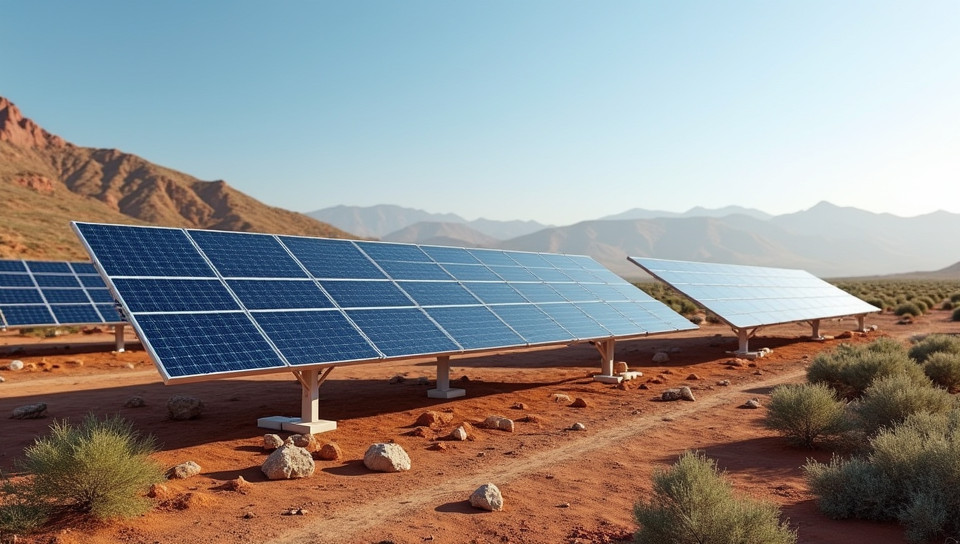Land-based solar panels face environmental and space constraints 71%

Land-based solar panels have been touted as a clean and sustainable source of energy, but they face significant environmental and space constraints that limit their potential.
The Limitations of Land-Based Solar Panels
As the world transitions towards renewable energy sources, land-based solar panels have become an increasingly popular choice. However, there are several limitations to this technology that must be considered.
Environmental Concerns
- Soil erosion
- Water pollution from cleaning agents used in maintenance
- Habitat destruction for wildlife
The use of large areas of land for solar panels can lead to soil erosion and habitat destruction, which can have devastating effects on local ecosystems. Additionally, the cleaning agents used to maintain the panels can pollute nearby water sources.
Space Constraints
Land-based solar panels require significant amounts of space to generate a substantial amount of electricity. This means that they compete with other land uses such as agriculture, housing, and conservation areas for limited available land.
The Search for Alternative Solutions
In light of these limitations, researchers are exploring alternative solutions to harness the power of sunlight. Some of these alternatives include:
- Bifacial solar panels, which can generate electricity from both sides
- Solar windows that integrate photovoltaic cells into building facades
- Building-integrated photovoltaics (BIPV) that turn buildings themselves into solar generators
The Future of Solar Energy
While land-based solar panels face significant environmental and space constraints, the future of solar energy is not limited to this technology. By exploring alternative solutions and pushing the boundaries of innovation, we can unlock a more sustainable and efficient path forward.
In conclusion, land-based solar panels are an important step towards a more sustainable energy future, but they must be considered in conjunction with their limitations and constraints. By doing so, we can work towards a cleaner, greener, and more sustainable world for all.
- Created by: Dhruv Kumar
- Created at: Aug. 17, 2024, 11:52 p.m.
- ID: 7664








